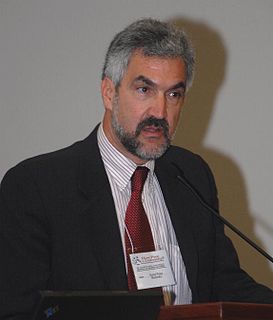A Quote by Maajid Nawaz
Preying on the grievances of disaffected young men is the bedrock of Islamism.
Related Quotes
You know, Hillary Clinton's out there saying, we need smart diplomacy. We need to do smart power. And that means empathizing with our enemy, understanding their grievances, like we understand the grievances of homosexuals, like we understand the grievances of African-Americans. We must learn to understand the grievances of ISIS.
I've always maintained there is no incompatibility between Islam and democracy. The Europeans in general confuse Islam and Islamism. Islamism is a political movement that instrumentalises the religion to get to power, which has nothing to do with religion. Islam here in Tunisia is a religion of openness, of tolerance.





































